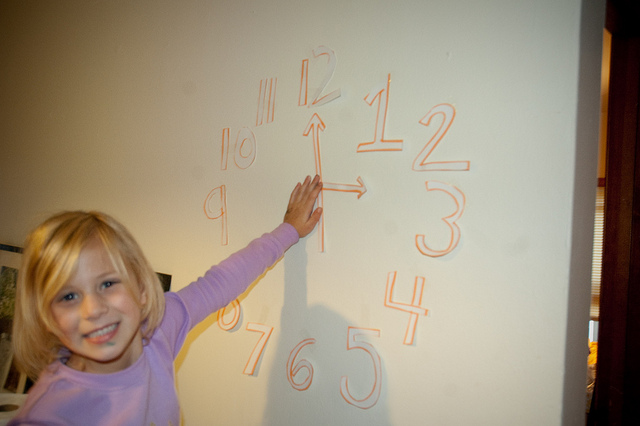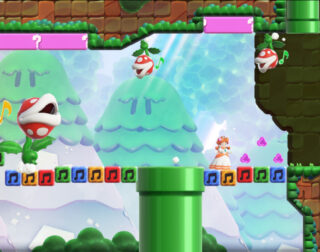All kids have a slightly distorted sense of time. Some, however, seem to have a sort of “time blindness” and exhibit a skewed sense of how much time has elapsed from one moment to the next. For a child with “time blindness”, estimates of time required for particular tasks are drastically inaccurate. He might predict that the familiar half-hour trip to grandma’s will take two hours. He may allot an hour for a homework project that will easily take an entire day to complete. In this edition of the LearningWorks for Kids Beyond Games series we suggest strategies to help the kid who loses track of time.
Play time-estimating games. Randomly ask a child what time it is or how long it has been since you left the house, being certain that you know the answer. This will help make him more cognizant of time and its passage as it relates to his own life. Or play video games that exercise time management, a few of which we detail below.
Help them see the details. “Time blindness” is symptomatic of problems with time management or processing speed. Encourage a child to think about the various subtasks that are required to complete a home- or school-based activity. For example, completing homework might require organization of all of one’s materials, completion of each of the individual subject areas, time for any collaborative work with other students, proofreading, and then making sure that is all filed away properly. Have him add up the amount of time he will need for each of the subtasks. Do this on a consistent basis until he begins to get a feel for the amount of time he might need to get things done. Be involved in this process so that you can give feedback as to the accuracy of his estimations and use this exercise as a point of discussion for later.
Perform an informal time study. Test your child’s time estimate for an specific task. Time his work from start to finish and use these results as a baseline for completing this chore. Then gradually set shorter time limits for completing the task. For example, state the expectation that a child can unload the dishwasher or clear the table within 15 minutes. As you work towards decreasing the limit to 10 minutes, praise any efforts and attempts to complete the task more efficiently. Help him to determine ways to become more efficient at accomplishing tasks. Doing this on a routine basis could help him to become more accurate in time estimation and lead to improvement in his overall time management.
Develop estimating and predictive skills to improve efficiency. Ask a child what he thinks an answer to a homework question will be before he begins on the work. Have him quickly estimate answers to straightforward computational math problems, emphasizing that you do not want the exact answer but an approximation. Encourage him to think quickly about how he might answer a history or social studies question, what kinds of facts he would need to acquire, and what the teacher is looking for in the answer. The underlying goal is to get him started on these types of tasks rather than spending too much time thinking about what to do.
Complementing these core strategies with the use of apps, websites, and other technologies often leads to improvement of a child’s ability to manage and estimate time. Some of the best tech tools to help a child with estimating time include:
 Kingdom Rush is a popular mobile strategy game is perfect for helping children see the importance of managing time in a fun and engaging way. Defending castles they’ve taken time to construct from enemies of differing strengths and speeds will help them think about priorities and task length in a new way.
Kingdom Rush is a popular mobile strategy game is perfect for helping children see the importance of managing time in a fun and engaging way. Defending castles they’ve taken time to construct from enemies of differing strengths and speeds will help them think about priorities and task length in a new way.
 Timewinder is an app that helps the time challenged get on task and stay on task by allowing users to block out their entire days’ activities. While it may not be necessary for your child’s time to be so regimented, it can be eye opening to set the app up to track and alert him of his daily tasks, from walking the dog to homework time.
Timewinder is an app that helps the time challenged get on task and stay on task by allowing users to block out their entire days’ activities. While it may not be necessary for your child’s time to be so regimented, it can be eye opening to set the app up to track and alert him of his daily tasks, from walking the dog to homework time.
 HabitRPG, a website and mobile app for Android and iOS devices, sets a user’s daily responsibilities into an MMORPG-style user interface. Projects, chores, and other tasks are tracked and rewarded as in a video game, making time management and personal responsibility satisfying in a way that kids who play video games can appreciate.
HabitRPG, a website and mobile app for Android and iOS devices, sets a user’s daily responsibilities into an MMORPG-style user interface. Projects, chores, and other tasks are tracked and rewarded as in a video game, making time management and personal responsibility satisfying in a way that kids who play video games can appreciate.
Featured image: Flickr user Jodimichelle





